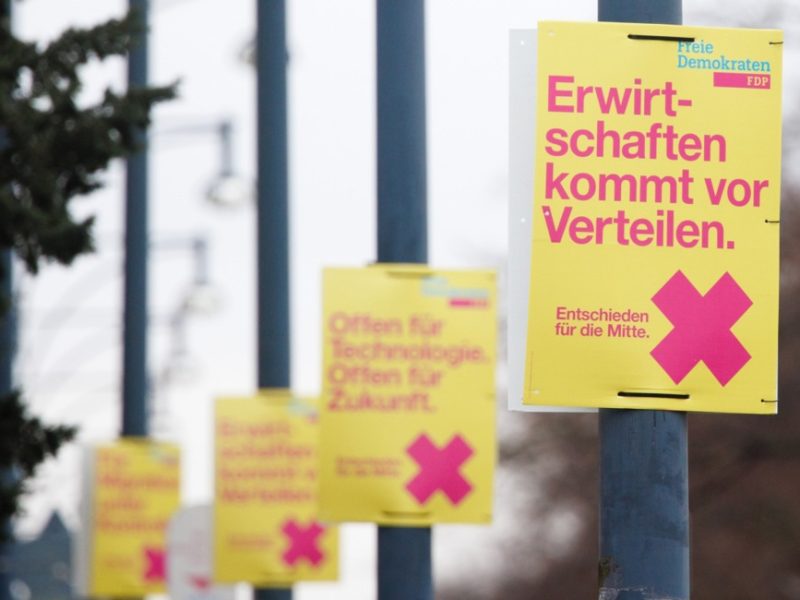
While the German government increases pressure at EU level to cut red tape for businesses, it faces obstacles to achieving the same goal at home as it prepares to adopt a “bureaucracy relief” measure on Wednesday (13 March).
German government officials, particularly from the liberal FDP party, have repeatedly blamed the EU for increasing red tape and currently oppose the proposed EU supply chain rules as they say they would add an excessive reporting burden on businesses.
However, the German government has its own problems when it comes to reducing the bureaucratic burden of national regulations, with business representatives complaining that their proposals have been largely ignored.
A draft law to be adopted by the German government on Wednesday, known as the Fourth Bureaucracy Relief Act, has included only a tiny proportion of the proposals made by business associations, industry representatives say.
“More than 50 [business] associations made 450 proposals,” Michael Wiener, vice-president of the SPD Business Forum, a lobby group close to government party SPD (S&D), told a conference of the group on Tuesday.
He added that according to the administration, only 40 to 50 of these made it into the final draft.
However, the Federation of German Industries – BDI – said in a statement that just 11 of the proposals were included in the draft law, arguing the legislation “falls far short of expectations.”
In the same statement, Ralf Nitschke, board member of glue manufacturer Jowat SE, said “I see a lot of small-scale measures that don’t have a big impact.”
Cutting red tape could hurt social goals
However, for Dierk Hirschel, chief economist of Ver.di, Germany’s second-biggest trade union, the difficulties the government faces to deliver on cutting red tape contrast with businesses’ narrative, which often lumps together obligations that actually have an important role to play as ‘bureaucracy’.
“Some [organisations] have a hidden agenda,” he told the conference on Tuesday, adding that many of the demands of employers’ associations dismantle workers’ rights instead of reducing bureaucracy.
“For example, when they call for the documentation of the minimum wage to be cut, when they call for more flexible working hours, i.e. no longer documenting working hours, when they call for reductions in occupational health and safety,” he said.
His view was echoed by Bernd Krösser, state secretary in the Federal Ministry of the Interior, who said that “bureaucracy is simply necessary for a complicated society like ours”.
“In other words, a society has a set of rules with which it tries to balance out the many different interests,” he added.
The German society, Krösser said, is characterised “by the desire for a set of rules that somehow does justice to almost every individual case and somehow regulates it,” adding that this is why much of the existing regulation is so complex.
A question of mindset?
Economy Minister Robert Habeck (Greens) acknowledged that cutting red tape was a mammoth task, pointing to the decentralised nature of the German administration.
“You have to understand why there is so much bureaucracy. And the main reason is that we have politically outsourced a lot of decisions that are made through administrative acts, i.e. building permits, permits for power lines and so on,” he said.
Because administrations did not want to face the risk of losing potential lawsuits against their decisions, they would try to do things “not 100% well, but 150% well”.
“In other words, there are people everywhere who always work according to the latest scientific findings, out of a good […] motivation,” he said.
To speed things up, however, Habeck argued, administrations should be open to changing mindset and take more risks, even if it means losing 5% of court cases.
“The key to reducing bureaucracy is not awareness of bureaucracy, but an understanding that we have to [live up to] responsibility, and [that] means taking a risk,” he said.
[Edited by Alice Taylor]









